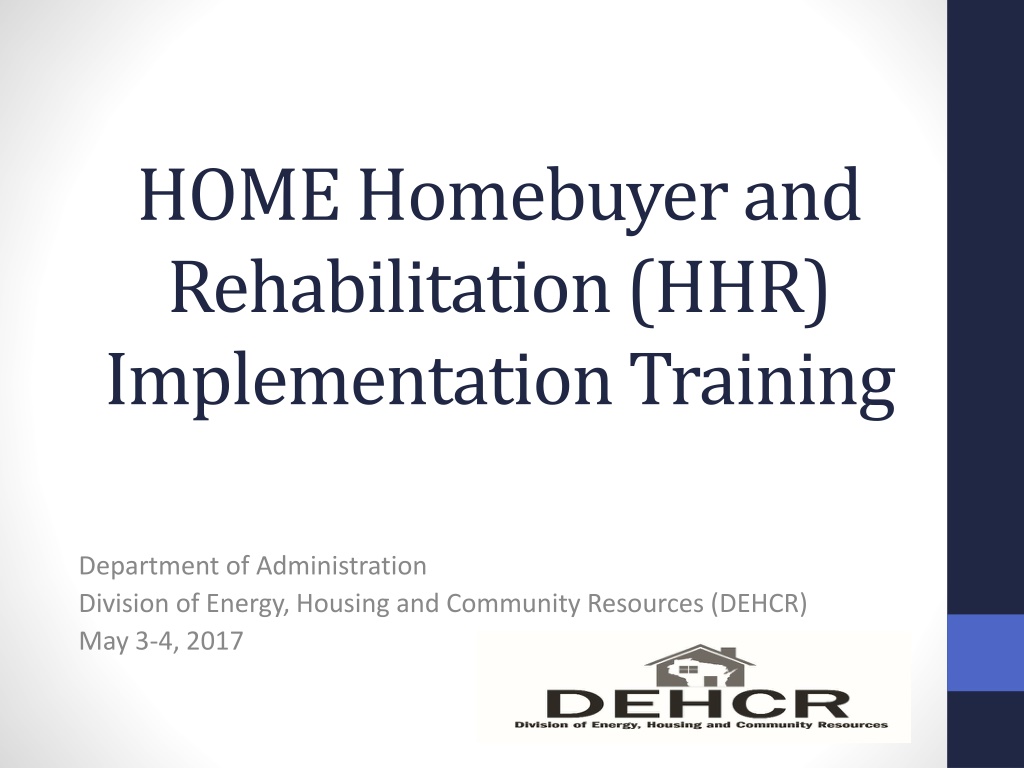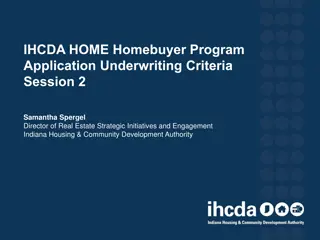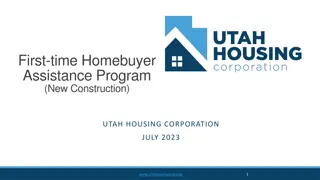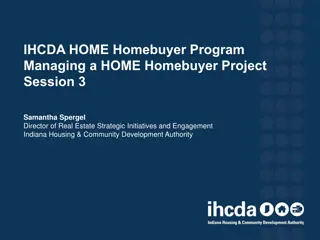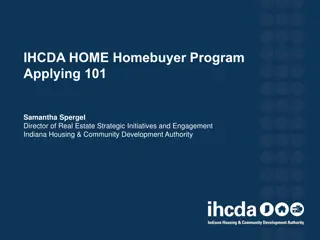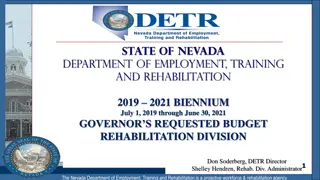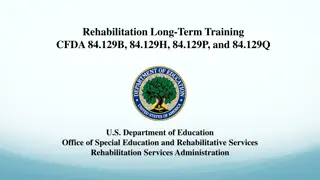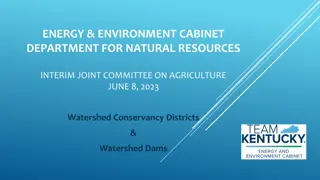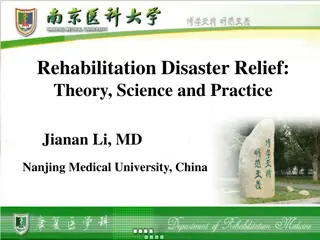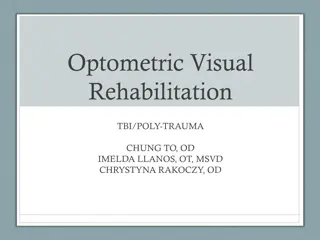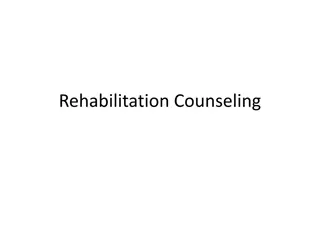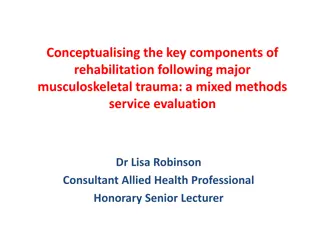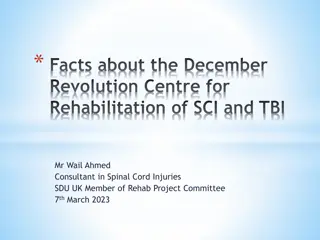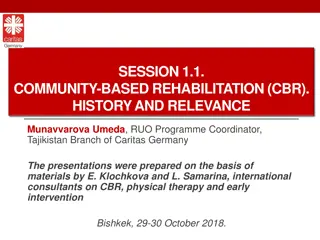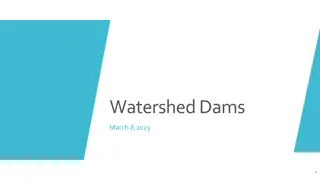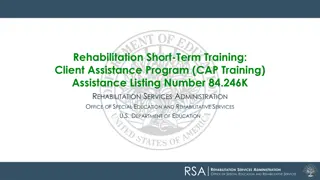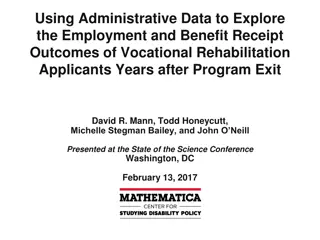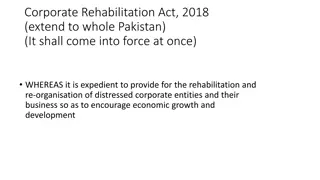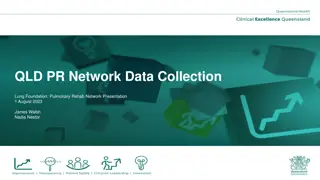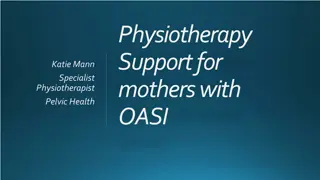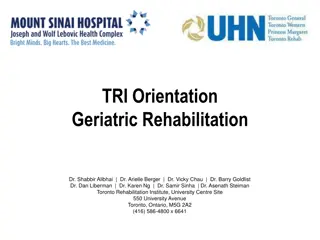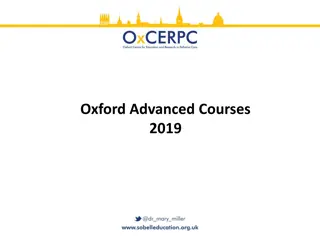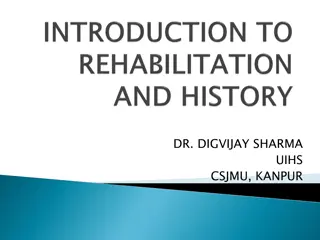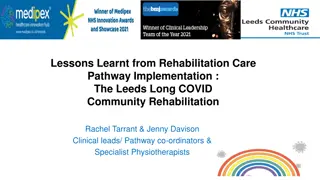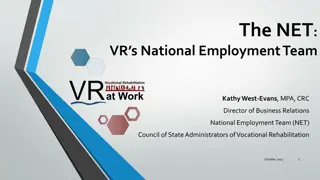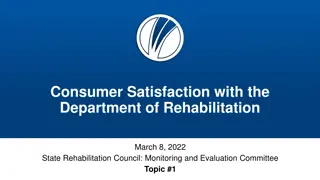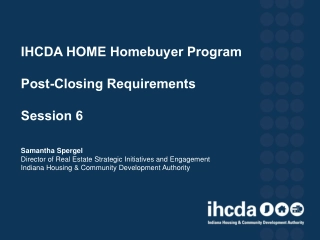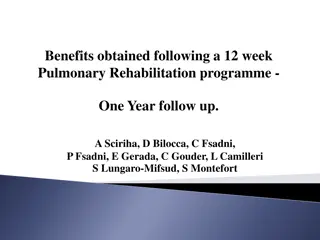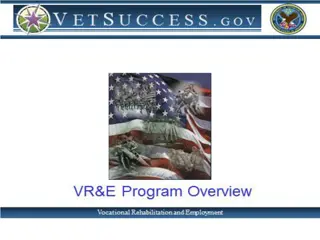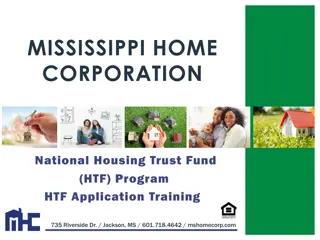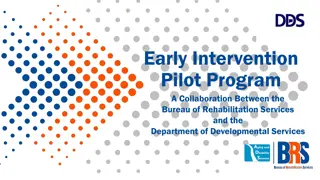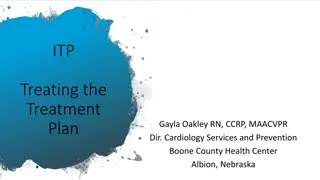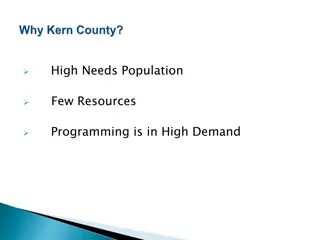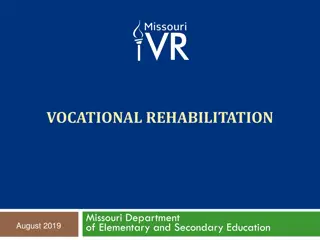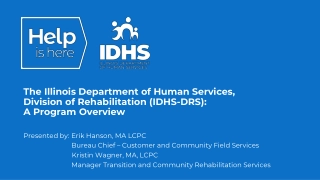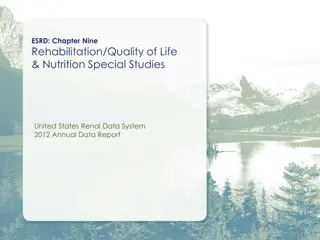HOME Homebuyer and Rehabilitation (HHR) Program Overview
Providing an insight into the HOME Homebuyer and Rehabilitation (HHR) program, this training session covers various aspects including program requirements, funding details, grantee information, annual contracts update, and HHR activities for single-family homes and other housing units.
Download Presentation

Please find below an Image/Link to download the presentation.
The content on the website is provided AS IS for your information and personal use only. It may not be sold, licensed, or shared on other websites without obtaining consent from the author. Download presentation by click this link. If you encounter any issues during the download, it is possible that the publisher has removed the file from their server.
E N D
Presentation Transcript
HOME Homebuyer and Rehabilitation (HHR) Implementation Training Department of Administration Division of Energy, Housing and Community Resources (DEHCR) May 3-4, 2017
Introductions Theola Carter, Bureau Director, Bureau of Housing Kenna Arvold, Section Chief, Bureau of Housing Karl Kuecker, Program Manager, Home Homebuyer and Rehabilitation (HHR) Joe Oby, Program Manager, Housing Cost Reduction Initiative (HCRI)
Objectives Day One Provide HHR Program Overview Review General Program Requirements Identify Homeowner Rehabilitation and Homebuyer Activities Environmental Review Requirements Outline Program Income Requirements Define Administrative Costs Review Monitoring Requirements and Procedures
Program Overview Funding Homebuyer and Homeowner Rehabilitation funds total approximately $7 million for the biennial funding cycle The Wisconsin Department of Administration awards these funds to local units of government and local housing organizations through a biennial funding cycle
HHR Grantees . 1 2 3 4 5 6 7 8 9 10 Couleecap, Inc. 11 NHS of Southwest Wisconsin ADVOCAP Appleton H.A., Inc. Ashland County Housing Authority CAP Services, Inc. Chippewa County Housing Authority Eau Claire County Housing Authority Hmong American Center TBD NEWCAP, Inc. 12 NW Affordable Housing, Inc. 13 Options for Independent Living 14 Partners for Community Development 15 Project Home 16 Renewal Unlimited, Inc. 17 Southwest CAP 18 Taylor County Housing Authority 19 West CAP, Inc. 20 Western Dairyland 21 Winnebago County Housing Authority
Program Overview Annual Contracts DEHCR is moving to annual HHR contracts to better meet program performance and funding needs New HUD grant based accounting Applications will still cover two years Contracts will go from April 1 to December 31 of the following year (21 months) Contracts for the second year will be based off grantee performance and available funding HCRI contracts will remain the same (two year funding)
Program Overview HHR Activities Homebuyer and Homeowner Rehabilitation projects Single family homes Traditional, condominiums cooperative units, and manufactured (mobile) homes) Family income at 80% or below County Median Income (CMI) Meet community needs for affordable housing Homebuyer Acquisition only Acquisition and Rehabilitation New Construction Acquisition and New Construction Homeowner Rehabilitation Rehabilitation only Reconstruction
Program Overview New 2013 HOME Rule Requirements (published July, 2013) Production/occupancy timelines Activities (projects) must be completed within 4 years New homes must be sold within 9 months after construction Performance 5 year useful life of major systems (heating/cooling, water heater, etc.) Homebuyers must receive housing counseling
Program Overview Performance con t. Underwriting and subsidy layering Applies to homebuyer development projects Specific items include: Budget and schedule Funding sources and uses/financing commitments Market assessment Developer experience/capability Uniform Property Condition Standard (UPCS) Replaces Housing Quality Standards (HQS) Extensive training required More detailed than HQS HUD has delayed implementation of UPCS for HOME
Program Overview Community Housing Development Organizations (CHDOs) Only developer role for Homebuyer projects CHDO funds committed only after contract established for each project DEHCR must set aside 15% of HOME funds for CHDO projects Grantees must be CHDO certified for each project Detailed information on HOME rule can be found at: https://www.hudexchange.info/programs/home/home-final-rule/
BREAK Let s take a 15 minute break!
General Program Requirements Forms of assistance Below market rate amortized loans Principal and interest repaid Repayment on regular basis Non-interest loans No interest charged Principal repaid on regular basis Deferred payment loans Principal and interest deferred until home no longer needed Can be forgivable over time Grants Requires no liens Must be deed restricted on homebuyer activities unless assistance provided to homebuyer
General Program Requirements Subsidy limits Minimum $1,000 Maximum published by HUD annually and on HHR website https://energyandhousing.wi.gov/Pages/AgencyResources/hhr. aspx#forms Maximum property values 95% of county median purchase price Applies to both Homebuyer and Homeowner Rehabilitation https://energyandhousing.wi.gov/Pages/AgencyResources /hhr.aspx#forms
General Program Requirements Eligible HOME costs New construction Rehabilitation Reconstruction Conversion (either rehab or new construction) Site improvements Property acquisition Vacant land acquisition for new construction Demolition for new construction Relocation costs Refinancing existing debt (rehab only)
General Program Requirements Property Standards State and local codes National codes when no state or local DEHCR written rehab standards https://energyandhousing.wi.gov/Pages/AgencyReso urces/hhr.aspx Lead Safe Housing Rule New manufactured (mobile) home safety and construction 24 CFR 3280 Installed to state and local codes Permanent foundation and utility hookups
General Program Requirements Property Standards con t Housing Quality Standards (HQS) Applies to both homebuyer and homeowner rehab activities Pre-inspection prior to starting activity Post inspection required on all failed items http://blog.nanmckay.com/2015/01/hud-posts- updated-hcv-inspection-forms/
General Program Requirements Affordability Period Length of time home must be principal residence HOME Affordability Periods Investment Affordability Period Less than $15,000 5 Years Between $15,000 - $40,000 10 Years More than $40,000 15 Years Waiver Requests Required when owner-occupied rehabilitation is $30,000 or more or homebuyer acquisition/rehabilitation is $40,000 or more Submit form, statement of work, price quotes and pictures https://energyandhousing.wi.gov/Pages/AgencyResources/hhr. aspx
General Program Requirements Project Underwriting and Subsidy Layering Budget and Schedule Detailed list of budget items (labor, materials, contractors, etc.) Detailed list scheduled events (purchase land, excavation, foundation, electrical, walls, plumbing, framing, etc.) Funding Sources and Uses (handout) Market Assessment (handout) Developer Experience and Capability (handout) Financing Commitments Construction loans Contractor agreements Home funds Other agency funding Other examples?
Homeowner Rehabilitation Ownership requirements Fee simple title 99 year lease (50 year community or tribal land) Owns condominium Cooperative membership Owns and occupies inherited property and shares ownership Life estate Living trust Beneficiary deed Land contracts are NOT considered ownership
Homeowner Rehabilitation Eligible activities Repair, rehabilitation or reconstruction of owner- occupied homes Special repairs such as weatherization or emergencies eligible only if part of overall plan to make home safe, decent and sanitary After Rehab value Grantee estimates (must include documentation) Appraisals Tax assessments After rehab value can t exceed purchase price limit
Homebuyer Eligible activities Acquisition Seller must fix any deficiencies Acquisition and rehabilitation Provide funding for rehab in addition to, or instead of, down payment assistance Approaches Grantee acquire/rehab and then sell to home buyer Assistance provided directly to home buyer for rehabilitation Rehab must be done within six months of closing New construction Grantee develops new housing unit or works with developer Must be vistable Includes purchase of land Additional dwelling unit outside existing walls is new construction
Homebuyer Ownership requirements Fee simple title Condominium Cooperative membership Manufactured (mobile) Forms of direct subsidy assistance Down payment and closing costs Gap financing Sales price write down Homebuyers must receive housing counseling
Homebuyer Recapture and resale provisions Ensures long-term affordability Resale Home must be sold to another low-income family at affordable price Deed restrictions of land covenants to enforce Sales price must be affordable Recapture Direct assistance provided to homebuyer Down payment assistance and/or closing costs Interest subsidy Subsidy that reduces purchase price below market value Development subsidies (sunk costs) don t count as direct assistance
Homebuyer Long-term affordability period Depends upon amount of HOME funds provided Resale: amount invested Recapture: amount provided as direct assistance State uses recapture method If no direct subsidy provided or provided as a grant then the resale provision must be used Recaptured funds taken out of net proceeds Net proceeds are sales price minus superior loans Funds must be used on another HOME eligible activity Grantee CAN T take 10% for administrative costs if recaptured within affordability period If recaptured outside affordability period, funds are considered program income not recaptured
LUNCH Let s re-convene at 1:00
Environmental Review Two basic reviews Statutory checklist Archeological Required only on new construction or major ground disturbances Must be done prior to activity setup Statutory Checklist Must be done for both Homebuyer and Homeowner Rehab activities Copy placed in activity file https://energyandhousing.wi.gov/Pages/AgencyResources /hhr.aspx
Environmental Review Compliance Worksheet (handout) Historic review process flow diagram (handout) Initial Project Review Form Submit form to DEHCR Environmental Desk https://energyandhousing.wi.gov/Pages/A gencyResources/hhr.aspx
Environmental Review Historic review requirements other than structural rehabilitation Demolition Documentation required: description, location, reasons, photos of building and any other significant architectural elements Properties not listed or a public hazard my proceed without review Relocation Documentation required: present and proposed location, description of proposed site, reasons, analysis of alternatives, photos New construction next to historic property or within historic district Documentation required: plans, drawings and specifications Submitted two months prior to construction Capital improvements Includes sewers, road improvements, curb and gutter and landscaping Activities for areas outside historic districts or NOT next to historic properties may proceed after consultation (no formal review)
Environmental Review Archeological Review For new construction or other ground disturbance Documentation required: project description, location and maps, and photos Submit form to Environmental Desk https://energyandhousing.wi.gov/Pages/AgencyResources/hhr.asp x DEHCR Environmental Desk Department of Administration Division of Energy, Housing and Community Resources 101 E. Wilson St. 5th Floor P.O. Box 7970 Madison, WI 53807-7970 DOAEnvironmentalDesk@Wisconsin.gov
Program Income What is program income? Proceeds from sale or long-term lease of real property acquired, rehabilitated or constructed with HOME funds Gross income from the use or rental of real property owned by the grantee that was converted to rental Payments of principal and interest on loans Interest on program income Any other interest or return on the investment of HOME funds Any income generated by an activity funded with program income
Program Income Requirements Program income MUST be collected and reported annually Grantee must maintain records which identify source by activity and contract number Program income reported will be used when budgeting the next contract 10% CAN be used for administrative costs Recaptured funds (reminder!) HOME funds recouped by grantee when assisted homebuyer sells property within the affordability period Recaptured funds are NOT program income. 10% can t be used for administrative costs
Program Income Reporting Annual program income reports Accumulated program income for a year Activities where program income was used and received Sample report Future Receipting and Expensing of Program Income
Administrative/Planning Costs 10% of HOME award for program administrative and planning costs Cover both grantees and DOA Eligible Administrative Costs General management, oversight and coordination Generally staff salaries and overhead Third party administrative services agreements (e.g. legal, audit and accounting services Staff salaries/overhead to administer program (two approaches) Include entire amount of costs for each person primarily responsible for HOME (e.g. 90%). If only 30%, do not include Pro rata share for each person who works on HOME (could be 70% or 30%)
Administrative/Planning Costs Eligible Administrative Costs Con t. Indirect costs such as office rent, utilities and maintenance Must be allocated Fair housing activities Complying with federal requirements Public information Informing public about the HHR program
Administrative/Planning Costs Project (activity) related Soft-Costs Costs directly related to development or financing of an activity Eligible soft-costs Architectural, engineering, or related professional services to prepare plans, drawings, or specifications Activity finance fees (private lender origination, credit reports, title search, recording and filing of legal documents, and permits) Impact fees Appraisals Relocation payments (moving and out-of-pocket expenses) Lead risk assessment and clearance testing Homebuyer counseling
Administrative/Planning Costs Implications of charging as soft costs Count towards maximum subsidy limit Max 15% of total activity cost Trigger 25% match Charged as administrative costs if activity doesn t go forward All Administrative and soft costs must be supported with documentation Soft costs generally not charged to client in HOME loan However, unassisted real estate costs CAN be charged to clients such as: Credit reports Appraisal fees
Administrative/Planning Costs Administrative/planning or Project soft costs Staff and overhead costs directly related to development or financing of an activity Grantees must choose to consistently charge specific costs as either administrative or project related for the grant period Can incurred by grantee or contractor If incurred by owner costs can only be projected related soft costs Some fees may be collected directly from clients Nominal application fee Not eligible HOME cost Homebuyer counseling Eligible HOME cost
Administrative/Planning Costs HOME Administrative and Activity Soft Costs Cost item Administrative Eligible project soft cost Soft costs charged to client (loan)* *Only in unassisted real estate transactions **May charge client counseling fee instead of eligible HOME cost. Not both Fair Housing activities X Rent/Utilities/Maintenance X Providing public information X Salaries and wages 3rd party services (consultants, legal, etc.) Complying with federal requirements X X X X X X Inspections X X Homebuyer counseling fees** X X loan processing/underwriting/servicing fees X Relocation services X Title fees X Arch/Engineering services for project plans/specs. X Project oversight X Lead risk assessment and clearance testing Appraisal fees Credit report fees X X X X X Note: May charge client application fee but is not an eligible HOME cost
Monitoring General Requirements Monitoring Monitoring Reports & Contract Balances Annually On-site or Desk 30 Day Notice Monitoring Overview Administration/Recordkeeping: Current, accurate & complete Financial Service
Monitoring Recordkeeping Application/Contract File Equal Opportunity and Fair Housing Activities Procurement Files Financial Records Administration Fund Program Income Allocation Policy
Monitoring Individual Project Files Beneficiary Applications Accurate, Complete Household Information Martial Property Statement Racial, ethnic and gender characteristics or option not to answer Conflict of Interest Statement Release of Information Grievances and subornation Policies Verification of income and calculation of eligibility
Monitoring Individual Project File (Cont.) Project/Project Standards Proof of homeownership (Rehab) Proof of homebuyer education Affordability calculation (Homebuyers) HQS Inspection Statutory checklist Correspondence with Environmental Desk (if applicable)
Monitoring Individual Project File Project/Project Standards (Cont.) Risk assessment and clearance testing Work write-up/specifications and cost estimate Estimate of after rehab value Contractor bids for work Copy of signed contract(s) between homebuyer and contractor Clearance test (for rehab in pre-1978 homes)
Monitoring Individual Project File (Cont.) Financial Documents Request for Payment for each payment signed by homebuyer, contractor, and inspector Change Order signed by homebuyer, contractor, and inspector (if applicable) Mortgage; Promissory Note detailing repayment requirements and principal residency requirements Truth-in-lending Right of Rescission Proof of homebuyer cash contribution Homeowner s insurance policy Documentation of Activity-related soft cost
Monitoring Individual Project File (Cont.) Documentation Reported to State Activity set-up Completion Report Match work sheet(s)
Monitoring Findings and Concerns State responds in writing within thirty (30) days of the monitoring Findings: Urgent issues that were identified during the monitoring and require additional follow-up or resolution Concerns: Non-urgent issues that were identified during the monitoring that may require additional follow-up or resolution. Best Practices
HOME Homebuyer and Rehabilitation (HHR) Implementation Training Department of Administration Division of Energy, Housing and Community Resources (DEHCR) May 3-4, 2017
Objectives Day Two Define Annual Income Requirements Part 5 - Exercise Review Financial Reports Identify Other Federal Requirements Review CHDO Project Requirements
Annual Income Requirements General Requirements HOME Program uses PART 5 Annual Income Definition Households must be at or below 80% of the area median income Annual Household Income Limits established by HUD
